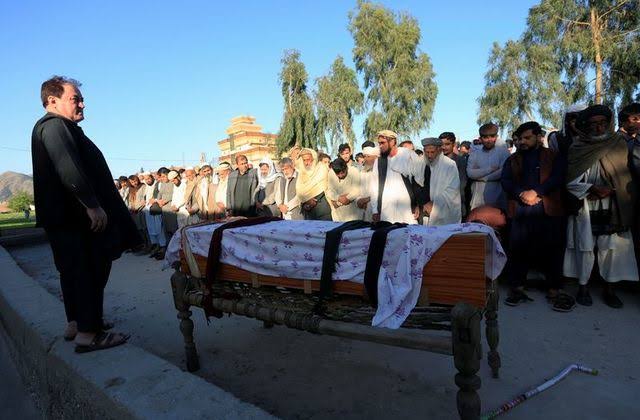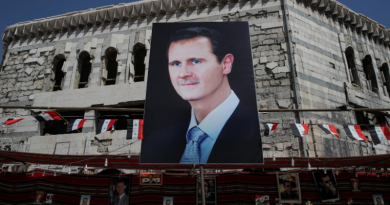Afghan polio vaccine drive in trouble after three female medics killed
Kabul (Reuters) – The killing of three female polio vaccine providers in Afghanistan this week has forced aid agencies and the government to re-assess field postings for thousands of female medics at a time when nearly 10 million Afghan children need polio drops.
Officials at the United Nation Childrens’ Fund (UNICEF), one of the agencies helping in the large-scale polio vaccination drive across Afghanistan that was launched this week, said they were reviewing the involvement of women in the role after unidentified gunmen killed three frontline workers in the eastern city of Jalalabad on Tuesday.
A UNICEF official said that steps were being taken to ensure that vaccinations continue but that the polio campaign in three districts, targeting an estimated 320,722 children under the age of five, will be delayed until after the Muslim holy month of Ramadan in May.
“We feel terrible that women who are selflessly offering services to children are killed senselessly in line of duty… It’s crucial we maintain momentum to ensure every child is vaccinated against polio,” said Godwin Mindra, an immunization specialist at UNICEF.
“We are considering providing a layer of security to female frontline workers but we are also aware that we cannot militarize any health campaign,” Mindra told Reuters, adding that an estimated 9.9 million children need polio drops this year across the war-torn country.
About 70,000 staff, including vaccinators, are involved in implementing the polio campaign, of which about 40% are women.
Afghanistan’s COVID-19 vaccination has not been affected since inoculations are being done at health centres and not door-to-door like the polio campaign, which exposes health workers to more danger, officials said.
They said scaling down the polio vaccinations would be catastrophic as the country this year reported about two dozen polio cases and about three million children were deprived of the vaccine in the past three years.
Female medics have been effective in implementing polio vaccine campaigns in conservative Afghan society as women in rural areas are reluctant to take their children to a male nurse due to cultural or religious issues.
Ghulam Dastagir Nazari, the head of the immunisation programme in the health ministry, said the motive behind targeting frontline female health workers remains unclear and he was re-assessing not just door-to-door campaigns but also protection to all health centres, where the COVID-19 vaccines are being administered.
“Our female employees can enter houses directly and even raise awareness about other health issues… they secure financial independence but such attacks could force many to leave the job,” he said.
Shot in the Forehead
Afghanistan and neighbouring Pakistan, both Muslim-majority nations, are the only two countries of the world where polio remains endemic.
Last year, religious hard-liners in Pakistan’s northwestern city of Peshawar spread rumours of children falling sick due to the vaccine, triggering backlash in the conservative Khyber Pakhtunkhwa province bordering Afghanistan, where most of Pakistan’s polio cases have been detected.
“The attack serves as a warning and we should take serious precautions and actions to prevent them in future,” Nazari said, adding more young men could be hired to run the polio vaccine drive.
No militant group, including the Taliban, has taken responsibility for the latest attack. In recent years, followers of the ultra-radical Islamic State group have been active in Nangarhar province, of which Jalalabad is the capital.
Families of the young medics killed said even women who step out of their homes for a noble cause are not safe in Nangarhar.
“The gunmen shot my cousin in her forehead and fled,” said Faisal, a relative of 23-year-old Samina who was killed along with her colleagues this week.
“It was her second day as a vaccine provider and she has been killed in the line of duty,” said Faisal, who uses a single name.



